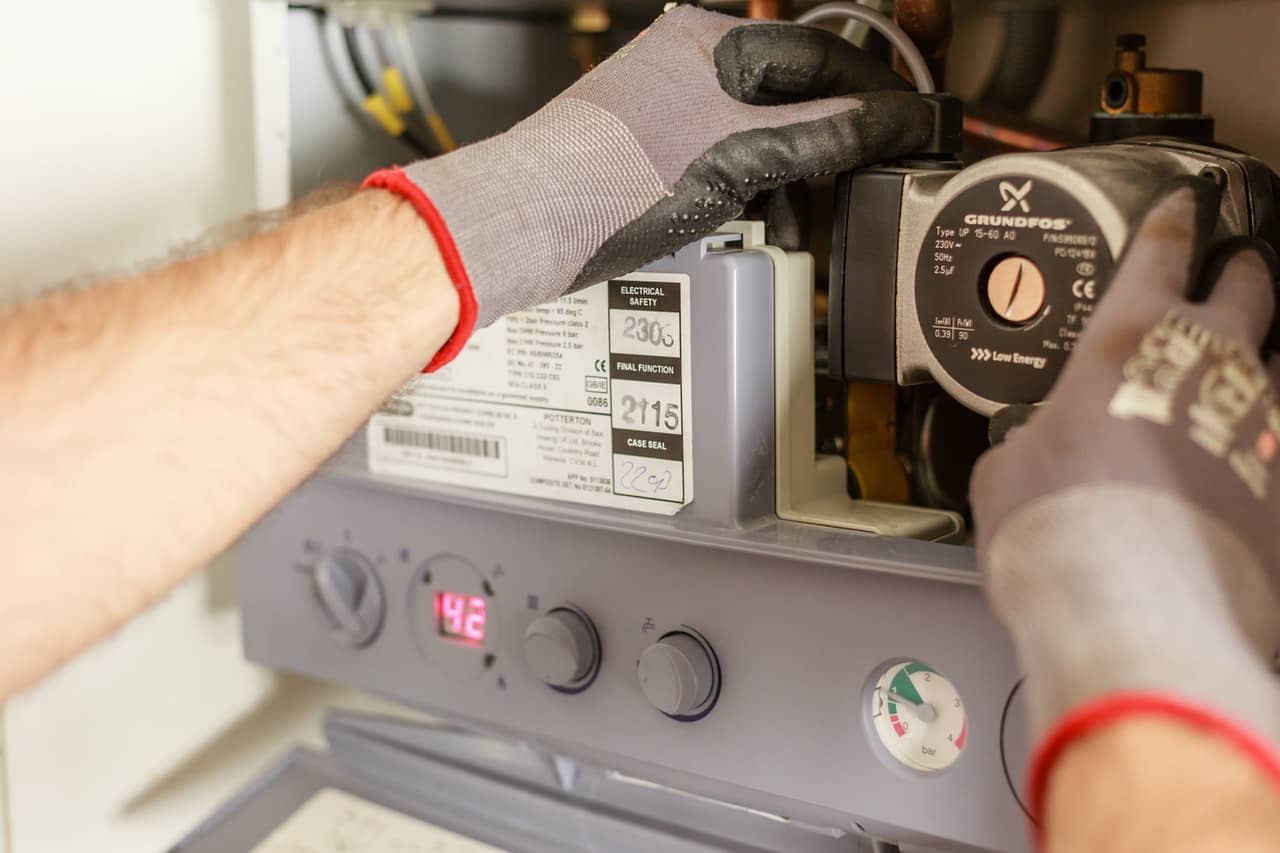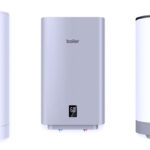Hot water is necessary for every household. However, its installation involves many technicalities that only a professional can understand. Besides providing a myriad of benefits, new boilers can be risky if they are not properly installed. Therefore, you have to show some vigilance if you are planning to install a new boiler in your house.
However, many of us have a vague knowledge in this regard. That’s why we get nervous before the process, as we do not know the correct way to start.
From getting the right type and size of boiler to hiring a professional heating engineer, there is a handful of work you should do before starting the installation process. Asking the right questions from your engineer will help you a lot in getting an effective installation and averting the dangers associated with improper installation.
Pen down these five questions, as they will help you in making your process smoother;
1. Are You Gas Safe accredited?
Before starting any gas work, the essential question to ask your engineer is about their accreditation. Installing a boiler is quite a process, and it would be a no-brainer to hire an unregistered gas engineer.
Therefore, always choose an engineer who has a Gas Safe ID in conformity to their license. According to Gas Safety (Installation & Use) Regulations 1998, only a Gas Safe engineer can perform gas-related work.
However, accidents are inevitable and can pose a significant danger to the lives of your loved ones. A loose fitting might trigger a gas leak or improper use might end up in a big disaster. That’s why; Gas Safety Certificate is needed to ensure your safety as well as to ensure your legal compliance.
Boiler installation is quite an expensive investment, but still, you go for it as you need it in cold weather,right? On the contrary, a gas safety certificate is something that you always need in your haven. Plus, it does not cost much to get a gas safety certificate. The cost of a gas safety certificate is between £35 and £99. Therefore, you need to focus on the safety aspect first before installing your boiler.
In the case of oil boiler installation, you should opt for OFTEC registered specialist. Such engineers have demonstrated their valuable expertise in several oil boilers and appliances. They won’t need to deal with local building authorities as they can certify their own work. You can confirm the registration of your heating engineer by checking their name on the OFTEC website.
2. What Type Of Boiler Do You Recommend?
This is an important question that you should ask your gas engineer. Getting the right type of boiler that meets your needs is imperative. If you head to the market to purchase a new boiler, you would get overwhelming options in terms of size, shape, type, etc.
Therefore, it is recommended to purchase through your engineer as they have the requisite knowledge about boilers and appliances. There are three prominent types of boilers; heat-only, system, and combination. Combination boilers are, by far, the most commonly used boilers in Britain households.
By looking at the difference between these three types, you can better communicate with your engineer about the right type of boiler.
Combination Boilers
Combination boilers are connected directly to water mains. They provide sufficient hot water when needed but are feasible for small homes only. Their pressure is not enough to facilitate more than one bathroom. Moreover, they do not contain a water tank as it is connected to the water main directly. That’s why they have small sizes and work best for small homes.
Heat-only Boilers
This is a conventional boiler that stores water in tanks and pumps through radiators. This produces plenty of water that can facilitate multiple bathrooms. However, you need to wait until the tank heats up. Moreover, this is not energy efficient as much of the hot water that goes to tanks gets wasted.
System Boilers
This is similar to the heat-only boiler except that water goes to a water cylinder instead of the tank. Similarly, they can afford multiple bathrooms and provide plenty of water for each of them. However, it is still less energy efficient than combination boilers.
Not sure which one to choose? That’s why we recommend you ask your heating engineer about the right type of boiler to choose. They might ask about your energy and installation costs to scan the options and get the best one that makes the best value for your money.
3. Where will you Install the Flue?
Asking about the flue installation place is also extremely important. Based on the place of the flue, condensation clouds can be a nuisance. According to the Gas Safe boiler regulations, the boiler should be installed on an external wall.
Moreover, the flue should be at a distance of 300mm from the nearest window, door, eaves of the roof, air bricks, or any other opening. If it is closer, your gas engineer would probably use a plume management kit to direct the flues away from the door or window.
Moreover, the new boiler plus regulations require that your combination boiler must be equipped with an energy-saving feature. This could be weather compensation, load compensation, smart control with automation or optimization, or a heat recovery system for the gases used in the flue.
4. Should I Invest in Magnetic Filters?
With the advent of technology, home appliances are getting smarter day by day. The metallic debris often gets struck within the thinner veined heat exchangers. These exchangers are present on new boiler models. This debris becomes a nuisance which can reduce your boiler performance and your engineer would power flush it before installing a new boiler.
That’s why; investing in magnetic filters is a wise decision, as they catch all the metallic debris and particles accumulated on these exchangers. This accumulated sludge affects your water flow rate, endangering your system performance.
This will keep your system clean and rest-free. Moreover, you will get reduced energy bills as your central heating system will work more efficiently in the presence of a boiler filter. If you have a flexible budget, you should invest in a deaerator. This will eliminate the microbubbles when installed on the flow. This will reduce the risks of corrosion.
The new boiler is a big investment, so this should sustain for a longer period of time. You should install a deaerator on the flow and a filter in your return pipe. Most gas engineers recommend these additional components to maximize your boiler life expectancy.
5. How long will Installation take?
Having a broken boiler is a nightmare, especially in winter months. When there is freezing weather outside, your boiler suddenly stops supplying cold water. You would want to know how much time installation would take, so you can get hot water again.
Knowing the estimated installation period will help you prepare in advance. It could take up to 1 to 3 days on average, to complete the installation process.
Many factors extend or shrink this time period. For instance, if you plan to change the type of boiler, the installation may take time. Similarly, if you want to change the location of the new boiler, this will take a significant time, as you need to make the new connections.
If you want to install the same type of boiler in the exact location, you may get it done in a day. However, it is great to expect two or three days and plan accordingly.
Other Considerations
Before installing the new boiler, ensure your engineer has power flushed your system. This is extremely important because power flush removes debris and sludge that may get stuck in your system. If your engineer skips this part, the sludge would remain in the system, damaging its performance. Plus, your warranty will be invalid if your boiler has been installed this way.
Once you smoothly finish the installation process, you must ensure that the benchmark page on the manufacturer’s installation guidebook is completed. This book contains detailed information about the work done on the appliance. If the engineer does not fill your benchmark page, your boiler’s warranty could become void.
Moreover, ask your engineer when you will receive your gas safety certificate. Usually, you receive a gas safety certificate within a few days after installing the boiler. If you do not receive it, ask your gas engineer to provide you with one. This is extremely important, both to comply with domestic regulations as well as to ensure your safety.
Key Takeaways
Getting the right boiler is all about asking the right questions from your gas heating engineer. Ensure the engineer you choose is properly accredited and has enough expertise in boiler installation activities.
You should also ask about the right type of boiler to purchase, the flue location of the new boiler, and any additional feature that would maximize your boiler’s efficiency and reduce energy bills. Moreover, just the installation of your boiler would not be enough; you should consider its long-term maintenance and safety as well.


